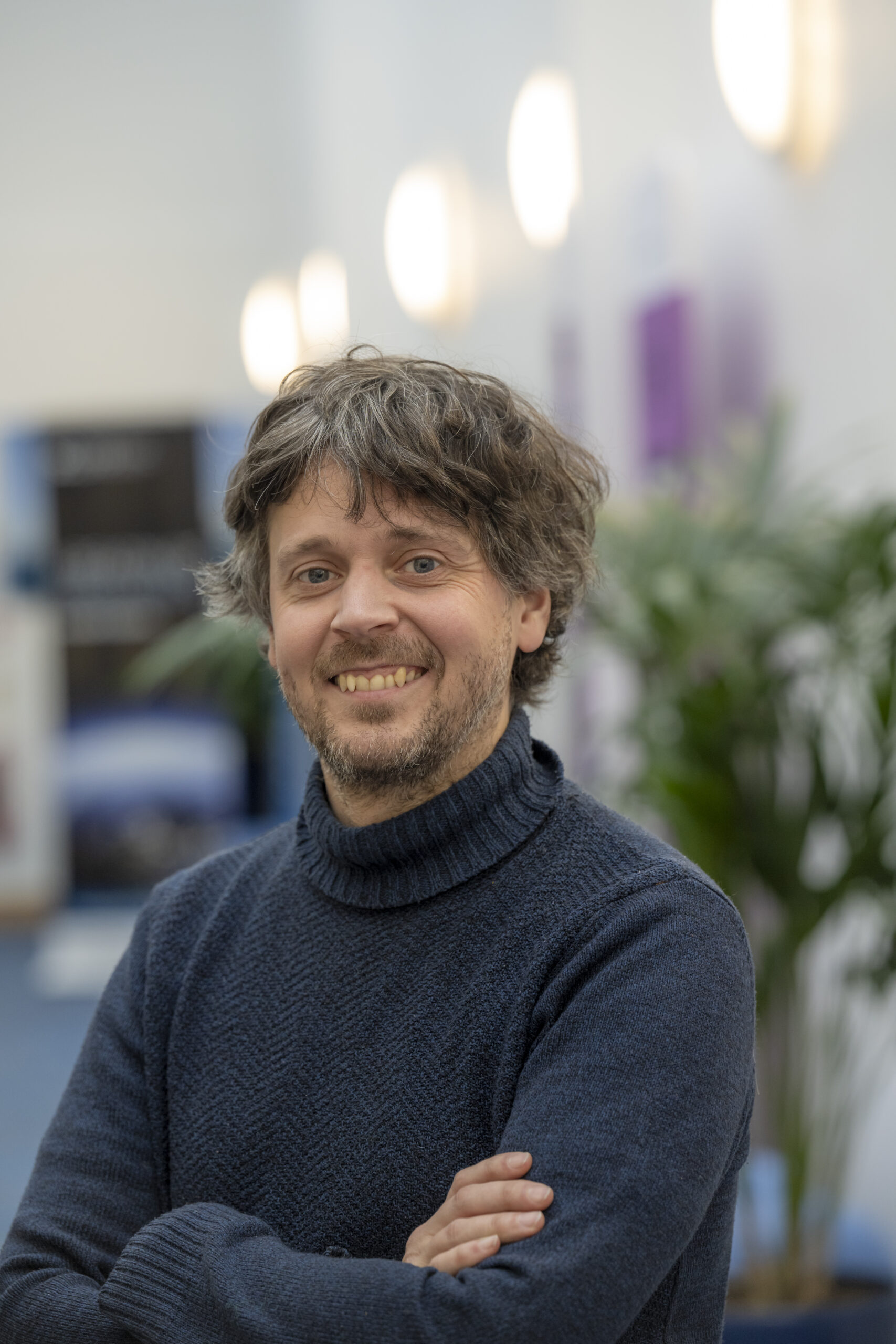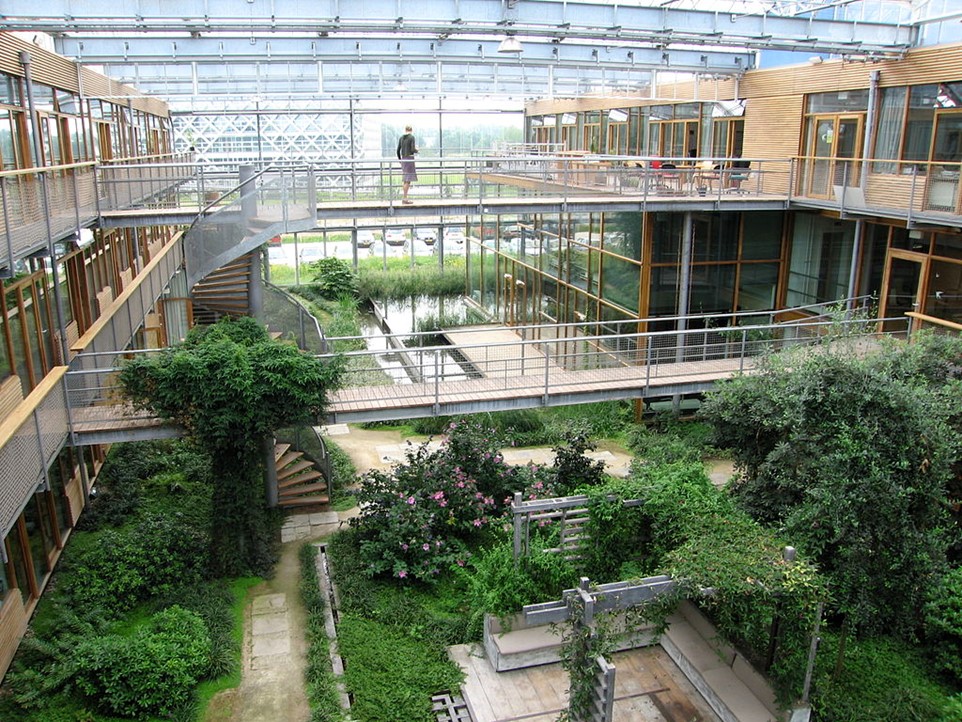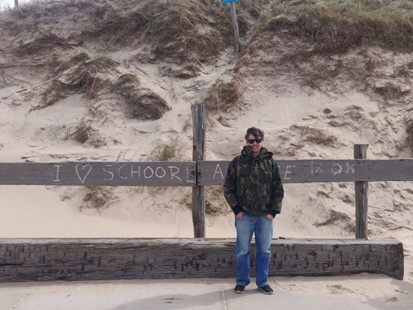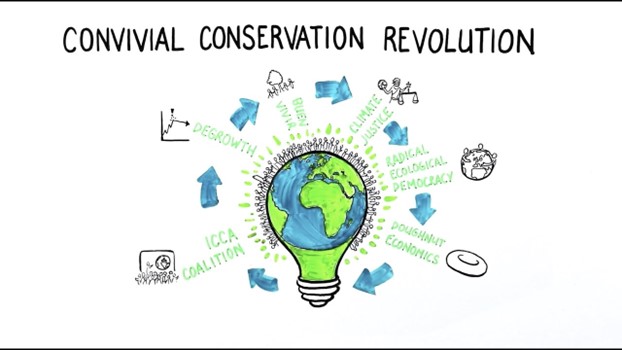Date: 14/07/2024
Author: Alex Lee

Bio:
Alex Lee is researching into rewilding in the UK. As well as looking at the benefits, he is looking into the ways neoliberalism and elite power are being used to frame rewilding, leading to problems with democracy, equity and accountability. He is based at the University of Brighton in the School of Applied Sociology. He has a small website and blog at alexjameslee.co.uk where you can find a contact form. I may be open to creating small sites for other PhD students for reasonable fees.
Introduction
I have just returned from a three month trip to Wageningen University in the Netherlands, funded by the Overseas Institutional Visit fund from the SCDTP. I was invited by Bram Büscher and was located in the Sociology of Development and Change group, and this period of three months was one of the best times in my PhD. Not only was I located in a lovely town, but I also made good contacts with researchers who are internationally respected, got my research more widely known, attended some great seminars, and now I am co-writing a paper with Shelby Matevich, who worked for Convivial Conservation. I also made some great friends. In this blog I will say more about this visit, and why everyone funded by the SCDTP should consider applying for an OIV.
When I first heard about the Overseas Institutional Visit, I didn’t really take in why it would be useful for my research. I think it was early in my research where I was just trying to figure out the literature and my methodology, and then Covid hit, so overseas visits were impossible for a while. After that I forgot about this as an option. In 2023, someone asked me if I was thinking of doing one, and it didn’t really sink it why this was useful. After some thought, I wondered whether going to a university with the two authors of The Conservation Revolution would be useful. I thought by being there I could learn a lot, as this was a book that I really admired, and I regularly cited other articles by the authors too. I messaged one of them on Twitter, got a response inviting me over, and started filling in the forms. The process of getting invited was simple, and I passed this onto SCDTP. Probably the most exciting part of my trip was getting to the Eurostar at 8am and being told that my passport was invalid and was on an Interpol list! Why this happened I don’t know and I expect I will never find out why this happened. I headed home exhausted, but within ten days I was on another Eurostar, and successfully got into the Netherlands.
Getting a place to stay was really difficult, as there was hardly any free accommodation. I had to get special permission to use Airbnb, which the University of Brighton does not normally allow, and I had to move house regularly because nowhere was available for the full three months. Housing is hard to find in the Netherlands, and very hard in Wageningen, as there are 13,000 students and 7,600 staff members, while the town is only 40,000 people. The university is primarily focused on natural sciences, and is a global player in areas such as advanced food technology, AI farming, biodiversity economics, entrepreneurship and climate science. One of the other students there said while it claims to be the “most sustainable university in the world it is also the most neoliberal too”… I cannot verify this, but it is possible, given the major partnerships with many global corporations, such as Unilever, who in 2019 located their Food Innovation Center on campus, International Flavours and Fragrances, which is another major international food company. The university has had enormous growth in the last 15 years as large corporations have increasingly developed research partnerships with the university. Many of the buildings on site were beautiful, such as the Gaia and Lumen building, which had fantastic features like indoor waterfalls, courtyards full of beautiful trees, and wonderful natural lighting. My building didn’t have any of that, unfortunately, but it was absolutely fine as functional space to work and was great for making connections!

I was located in the Sociology of Development and Change group, which is a leading voice in critical research. However, they also are trying to respond to common criticisms of critical research, such as that critical work does not provide practical outputs. One of the responses to this is the setting up of the Convivial Conservation organisation, which has a framework to encourage and support real-world examples of alternative ways of conserving nature in a socially just way, providing examples of alternatives to mainstream solutions. Bram Büscher and Robert Fletcher are two highly respected academics working in SDC, who in 2020 published The Conservation Revolution. This outlines their vision for these alternatives , and has created an international movement, for example, encouraging projects to move away from militarized “protected areas” that aim to save nature by fencing out people, to “promoted areas” that do not, and instead encourage people to visit and interact with non-human nature. These areas were well known to me from the literature, as they are key areas in conservation research. Getting to speak to them was really helpful for clarifying my own thinking about my work on rewilding in the UK, and got to bounce ideas off them in ways that I hadn’t been able to do in UoB, since there are very few people working on these subject areas.
Additionally I made a lot of other connections in critical conservation studies. I met people researching conservation politics around elephant corridors in India, tourism in Indonesia, alternative ways of valuing nature in the Alps, bird hunting trips in Malta, and housing issues in South America. I met people who were researching with Rewilding Europe and Ark, who are major voices in European conservation, heard presentations and discussions on Western forms of anthropology in the Global South, on the importance of acknowledging emotions and mistakes in research, post-human approaches to conservation, and politics of extinction. Possibly the most interesting was from Esther Turnhout, in science and technology studies, who gave a fascinating talk about how dominant knowledge systems tend to reproduce themselves. These connections will be something that I can draw on in my career, when looking for post-docs, job opportunities, conferences, papers, collaborations and projects.
The benefits to my research should not be underestimated. As part of this visit, I presented my research on the politics of rewilding in the UK, and got some really positive feedback, as well as some challenging questions that improved my thesis. As a result, when I publish articles on this subject, I know there is a network of interested researchers who will be keen to read it. It also means that I have a network of people researching into similar areas. In the University of Brighton, those researching conservation politics are few in number. Having this network could potentially change my career. For example, because of a chance conversation, I am now co-authoring a paper on rewilding and convivial conservation, two hot topics in research, which I hope will generate significant interest in the community. I know other people researching into this area, so there are possibilities for other partnerships in future. I have more awareness too of the possibilities of research funding available in the EU, which may be something I can look into after my PhD finishes. Just before I visited the Netherlands, I had a call with an experienced academic as part of the British Sociology Association’s mentoring programme. One piece of advice was to build an academic network. If you have this network you’ll be “lucky” more often, because you’ll hear about projects, job vacancies, conferences, and far more opportunities for interesting partnerships with other researchers. I think I am well on the way to building my network now.

Of course, I also got opportunities to travel around the Netherlands in my free time. The Netherlands has some great places to visit – historic cities, wonderful architecture, and great cycling and walking routes. The birdlife in Wageningen was great, and in one place I stayed I would watch jays building nests in the garden and heard nightingales and blackcaps in the park. A nearby wetland has birds such as black-tailed godwits. However, the favourite place I visited was Schoorl, which is next to the largest area of sand dunes in the Netherlands, and is a wonderful place to explore.
I would recommend anyone doing a PhD funded by the SCDTP look into whether the Overseas Institutional Visit would be useful for them. You can use this fund to get to know world-leading academics in your area of study, build a network of academics who are interested in your research, speak to people and go to seminars that could improve your thesis, create opportunities for collaborations in future, and of course, visit a new place and make friends too. The details are on SCDTP’s website but I am happy for anyone to get in touch with me if you have questions about it. You can contact me via my micro website.
